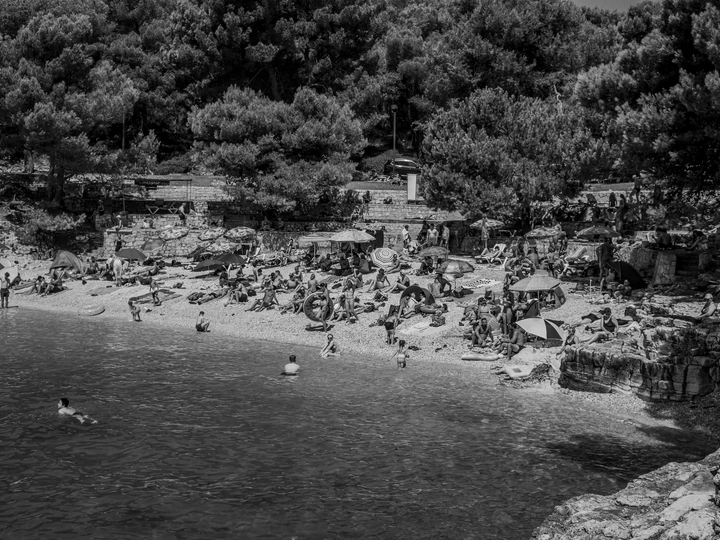Hotel More

Iskra Vukšić is a visual artist, artistic researcher and writer born in Šibenik (Yugoslavia) and raised and working in Amsterdam (The Netherlands). Her practice focuses on the systemic and ideological frameworks that can be distilled from built, natural and social landscapes. Iskra pieces together her understanding of these environments through visual observation and the collection of informal evidence such as casual anecdotes, fragments of overheard conversations, memories and the news. Within her narrative mixed media installations and associative lectures, she addresses the unwritten rules that play out in public and semi-public space. Amongst others, her multidisciplinary work encompasses spatial design, textiles, 3D animation and text, choosing materials and processes that inherently reflect the project concepts. Iskra frequently works with existing and recognisable commodities as a way to address a recognition of the environments and economic systems we navigate daily, inviting the audience to perceive new layers of information within familiar contexts.
Iskra’s cross-disciplinary associative research has been influenced by her educational background consisting of a BA in Art History, the interdisciplinary Masters programme Polis: Urban Cultures, and the visual arts MA in Designing Democracy at the Sandberg Institute in Amsterdam. She periodically works with Ekaterina Volkova as the artistic partnership vuksic&volkova, with whom she exhibited in W139 Amsterdam. Iskra spent the summer of 2021 in the Kamen Residency in Orah, Bosnia and Herzegovina, which resulted in a site-specific performance-installation on generational knowledge in relation to mass-emigration and ecology within the rural landscape along Bileća lake (vuksic&volkova). As an author, she has published in Metropolis M, Simulacrum and Sarmad Magazine. She recently started teaching artistic research and exhibition-making at the DesignLab department of the Gerrit Rietveld Academie in Amsterdam.
The tourist industry is booming. Never before has there been so much travel worldwide as in recent decades. The Croatian coast is amongst the most touristic destinations in the world in visitors per capita. Despite tourist gentrification and its large ecological footprint, the country's recent entry into Schengen and the Eurozone projects a further rise in arrivals. The beach is the main arena of this dynamic. Within Croatian maritime commons law, the beach within 6 meters of the waterline is a public space which cannot be privatized or fenced. But there are plenty of temporary reservations. Beach towels held in place with pebbles, rental sun loungers and hotel parasols form a landscape of narrow walkways within which crowds wordlessly negotiate space. This situated spatial negotiation is an echo of larger systemic interests in privatizations and spatial transformations that put pressure on the public access and ecology of the beachscape.
Hotel More is an artistic research on how the microcosm of the beach contains the tensions that arise as a result of the lucrative sun-sea-beach fantasy. The project is named after a generic seaside hotel. In Croatian ‘more’ means sea, in English it refers to the abundance of tourists that travel to visit her. As a spatial installation, it contains embroidered beach towels, parasols, and scaffolding which echo the temporary architectures of tourism that are superimposed on the beach landscape. These archetypal elements of Mediterranean tourism are manipulated through machine embroidery and paired with sunbased cyanotype printing that reveal invisible dynamics such as privatization battles of modernist seaside resorts and the widespread practice of dumping pebbles on beaches in order to enlarge them for touristic use, resulting in the rapid loss of biodiversity. At the core, Hotel More examines the contradiction that mass-tourism entails: that the maritime landscape is protected only insofar as it can be aesthetically exploited